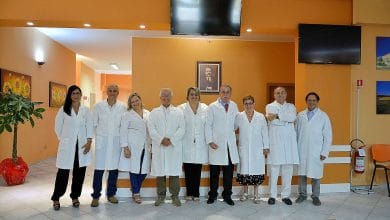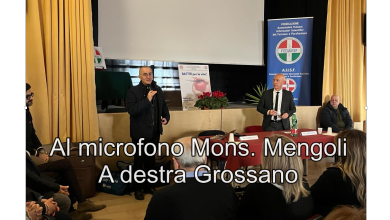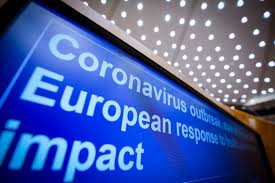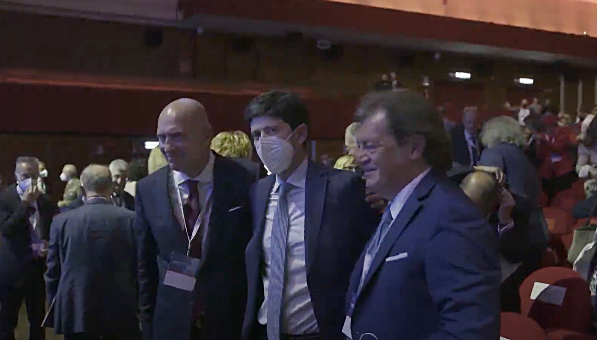
The assembly of pharmaceutical companies in the aftermath of the passing of the baton between Massimo Scaccabarozzi 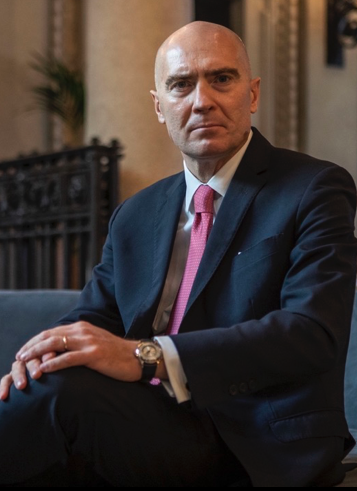 and Marcello Cattani. Two years of pandemic have written new rules and laid the foundations for a new approach to health. Companies are ready, but the explosion in energy and logistics costs is a problem that needs to be solved
and Marcello Cattani. Two years of pandemic have written new rules and laid the foundations for a new approach to health. Companies are ready, but the explosion in energy and logistics costs is a problem that needs to be solved
Ants - July 7, 2022 by Gianluca Zapponini
Wanting to draw lessons from history, the last two years have represented the most difficult test for the Italian pharmaceutical sector. Nothing was more violent and sudden than the great pandemic, a blow to an industry worth over 34 billion euros of production which, however, had its positive implications, if one may say so. By creating, for example, new awareness, new bases and new horizons for pharmaceutical companies. Because, if there is one lesson that the drug industry has been able to draw from over 24 months of fighting against Covid, it is precisely this: the world has changed forever and with it the concept of health, innovation and therefore prevention.
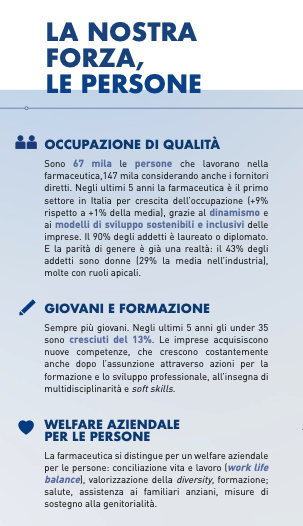 The starting point could not but be the numbers, echoed in the great hall of the Auditorium della Conciliazione, a few tens of meters from St. Peter's. Figures that tell the story of the growth of an industry, triggered by a health emergency that has not yet ended. Starting from employment, in the last 5 years it has grown in total by 9%, with a peak of +13% for both young people under 35 and women. Human resources, in the words of Cattani himself, "are the pride of the pharmaceutical industry in the country". That is, 67,000 total employees of drug companies, of which 6,770 in R&D. Graduates and graduates account for 90% of employed persons, compared to 63% for the industry average.
The starting point could not but be the numbers, echoed in the great hall of the Auditorium della Conciliazione, a few tens of meters from St. Peter's. Figures that tell the story of the growth of an industry, triggered by a health emergency that has not yet ended. Starting from employment, in the last 5 years it has grown in total by 9%, with a peak of +13% for both young people under 35 and women. Human resources, in the words of Cattani himself, "are the pride of the pharmaceutical industry in the country". That is, 67,000 total employees of drug companies, of which 6,770 in R&D. Graduates and graduates account for 90% of employed persons, compared to 63% for the industry average.
Investments chapter, where growth was recorded in 2021 of 3.1 billion euros, 1.7 in R&D and 1.4 in production. In particular, in R&D the increase over the last five years was almost 15%. It's not over. Production showed an increase of 8%, in the first 4 months of the year entirely thanks to the growth in exports (+32%). In essence, the Italy of medicines, even if with a slowdown in growth between 2019 and 2021, is confirmed in 2021 at the top for production in the EU, with 34.4 billion euros, together with Germany and France, thanks to an export that has determined more than the 85% in the last 5 years.
DRUGS EQUAL HOPE
“A model that worked perfectly by interconnecting with the one developed during the pandemic emergency thanks to the joint commitment of the authorities and healthcare professionals and businesses. Acceleration, new resources and flexibility of the authorization processes have been the levers to overcome this challenge. Nothing new to invent but a virtuous model to make structural". The number one of Farmindustria then narrowed his focus precisely on the pandemic. Claiming how “this approach has led in 12 months to responding to an unknown disease with 13 billion doses of vaccine produced in the world – with more than 200 collaborations between companies and public research centers – and effective drugs in blocking the disease. Today two-thirds of the world's population has had at least one dose. And in Italy it has allowed us to proceed with an excellent vaccination campaign, thus strengthening our role as a research and production hub for vaccines and therapies against Covid-19".
THE SPECTRUM OF INFLATION
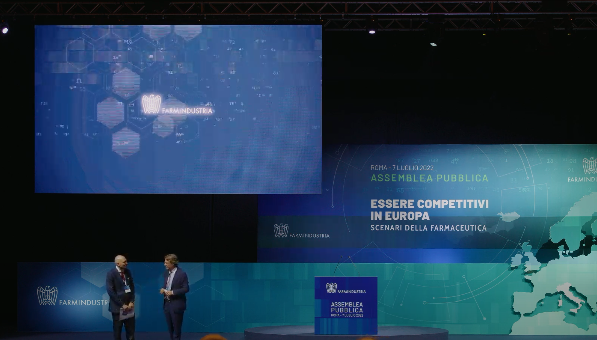 Attention, even if an innovative and successful industry is always an industry, made up of costs and revenues. And drug companies are no exception. After the pandemic came war and with it an unprecedented wave of inflation. And since producing costs money, the new president Cattani could not miss a passage on the explosion in energy-related prices, which rhymes with logistics in the pharmaceutical sector.
Attention, even if an innovative and successful industry is always an industry, made up of costs and revenues. And drug companies are no exception. After the pandemic came war and with it an unprecedented wave of inflation. And since producing costs money, the new president Cattani could not miss a passage on the explosion in energy-related prices, which rhymes with logistics in the pharmaceutical sector.
For the pharmaceutical sector, "energy and logistics costs increased by 350% between January 2021 and March 2022. As well as (+25%), in the same period those of: active ingredients, excipients, filters and of paper, plastic and glass, machinery, gloves and gowns”, warned Cattani. Cost increases that “companies cannot transfer, not even in part, to prices, which are administered. This causes significant difficulties for companies also because the incidence of increases is much higher in Italy than in France and Germany. A gap that penalizes us in a context of global competition that is increasingly crowded with European and non-European countries".
BETWEEN HEALTH AND SAFETY (NATIONAL)
On a day made up of pairs, even the government wanted to make its comparisons. Like the one underlined by Minister Giorgetti, for whom “the entire government is fully aware of the role of the pharmaceutical industry in Italy and, more generally, in Europe. An industry that plays a fundamental role in the Italian economy, not only as an industrial sector, but more generally as an element of national security in terms of citizens' health". Then, a proposal, in terms of simplification.
In other words, the opening of a global reflection between institutions and companies in Italy "to define a revision of the system of regulation and financing of the public demand for pharmaceutical products and of the rules for their marketing and pricing, in order to to make the attraction of investments compatible with the sustainability of the national health system”.
The Report of the President Cattani
Minister Speranza's speech
Hope: Resources but also reforms. «These have been 18 terrible months, perhaps the most difficult in the recent history of our country and I am a witness that the pharmaceutical industry has been a strategic partner in our response to the pandemic – said Health Minister Roberto Speranza.
Now it's a question of looking to the future starting from the numbers that tell us about a -95% of hospitalizations in wards and intensive care units. Deaths have also dropped, although I won't be satisfied until they're zeroed. It must be said that the current vaccination campaign is the most massive ever carried out, made possible by extraordinary teamwork that began with research.
Today we are at a decisive turning point in the history of our NHS and the crisis must be turned into an opportunity. The first point is the much more widespread awareness that investing in the NHS is the first given if we want to open a different season ». Looking to the future, for Speranza we need to make a paradigm shift: «It is the quantity of the right to health that we must protect that must decide the choices of the budget offices and not vice versa, as was done in the recent past.
The real point is to start investing again by remedying an error according to which a maximum of one billion a year was put into the National Health Fund. Then came Covid and then we put in 10 billion immediately, while now with the Pnrr 20 billion arrive in one fell swoop which can be the tool to open a new season of the NHS. We need resources but be careful – he added – we also need reforms which are the other necessary condition for relaunching the National Health Service. So goodbye to the logic of spending silos and looking at your sector via the logic of spending caps in pharmaceuticals and maximizing research and innovationAnd. Let's think about the payback story, which if I try to explain it to a foreign colleague, he thinks we're on the moon. A spending model built on needs is needed.
For my part, there is maximum openness to sharing the reforms. It is a challenge that we must all face together, with a large Country Pact. In a year and a half I have been able to count on you - he said addressing the drug manufacturers - and now the words of our national anthem are worth more than ever: we must rally together in order to be able to write a new and important page».
Related news: Rings (Fnomceo): “Best wishes to Cattani for a good job, harmony of views. Considering health an investment and not a cost"

